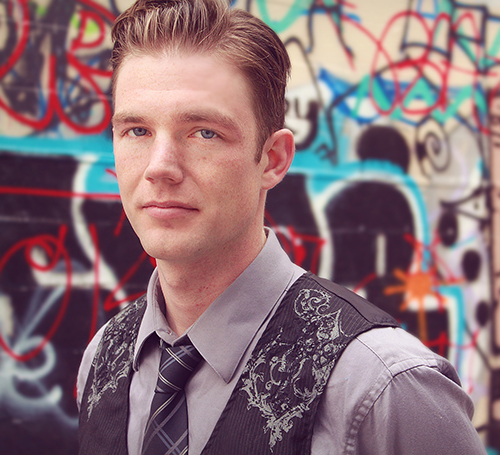THE FATE OF FATHERHOOD
★ ★ ★ ★

By James Prenatt
I don’t think I know yet what it means to love someone the way a mother or father loves their child. I heard somewhere that having a child was like falling in love with a thousand people in a thousand lifetimes all at once. I don’t have any biological kids, so what do I know? I feel at times that I will always be secondary; secondary to him as a father, secondary to my wife in the hierarchy of love.
Her motherly nature, the protectiveness she feels, and unconditional passion were apparent from the start. When he calls in the night she jogs to him while I lie there and tell myself it’s probably not that bad. When he is sick she is relentless in her care, nurturing in such a way that me, with my deep voice and often stoic demeanor, could never live up to.
My father was never a “boys-don’t-cry” type. He had a big heart and anytime we cried he tilted his head to the side and said nothing. He looked as if he would cry himself, as if he was watching a movie and his empathy led to sorrow. The weight of us on his shoulders at all times, an understanding of how we felt and that it was okay to feel that way.
I was home-schooled and this meant that I spent a good portion of my time with my grandfather, helping around the farm or being taken places. I was named after him and he would tell me that I had to do well because I was his namesake. He was a social butterfly who proudly showed me off to his friends and acquaintances. But he was also a masculine product of his time, someone who didn’t understand why I was quiet and shy. He was impatient and the things he said could be damaging, if not a big deal at the time, adding up eventually.
No doubt they’ve both influenced my parenting. I talk the way they talked, using the same phrases and often not seeming much of an authority until provoked. I have this masculine fear of intimacy, and I think most men do. They don’t touch, hold hands, or provide the same gentleness that mothers do. Only, they can and some do. Maybe it’ll be different when I have kids, but either way I have this thing where I’m fine loving, caring, and talking to friends and partners, but when it comes to family, especially men, I hide my own emotions and avoid feeling close to them, or for that matter letting them get close to me. because that’s what strong men do, right? How is that?
However when it comes to my wife, I share everything: more intimacy and honesty than with anyone else in my lifetime, tears, the way I feel about her and the protectiveness, the touching, and the nourishment, the pain I feel when she is in pain. So when I find myself unable to understand the way she treats him and the way he needs her, I try to think of the way I feel about her. I hope it’s not far off.
I believe in the Fate of Fatherhood; that we will be treated a certain way by our fathers, try everything to not become them and in the process, turn into them and treat our sons the same way. So there are also the good things we learn from them. I heard that the way our parents love and treat each other is how we’ll treat our spouses, especially when it comes to the way men treat women. I worry that he won’t pick up good habits from his biological father. I feel, and have fortunately been told, that just by loving his mother the way I do, he will love this way, too.
At one point I said love is never selfish. At another, I contradicted myself and said love was always selfish, especially parental love. It was silly of me to think that things were so absolute. You can be two things at once: male and female, gentle and rough, hateful and loving. My wife said she realized she loved me when I told her I’d be happy to meet her son. I can’t reciprocate the same “I knew when” answer for either of them. But if there was a moment, it was selfish. On Mother’s Day we took him to meet my family. On the way in he reached for my hand. As we walked into a crowded room of bright eyes excited to meet the first child brought into the family in years, he hid behind my leg, shy and playful, the way I did with my mother when I was his age. In that moment I knew that it was me he was looking towards for comfort. I picked him up and he put his head on my chest. He did not differentiate me as stepfather or biological parent. He knew that I was someone to trust and I knew that I would not be able to be nurturing if I did not love him.
Before we moved in together we’d have family nights on Sundays. I would drive with her to pick him up from his dad’s and we’d grab fast food or go to the playground afterwards. Every now and then, I would say this:
“Hey baby, guess what?”
“What?”
“I love you.”
Then, “Hey buddy, guess what?”
“What?”
“I love you.”
In response I heard him say he loved me too, probably for the first time. I smiled. Kids, like adults, know the weight of these words and don’t throw them around loosely. Now here I am, doing things I never thought I could: reading stories and getting him to bed, picking him up in the morning and taking him into our bed for a few extra minutes of sleep and cuddle time, taking him to school and watching him alone while my wife is at work. He calls to me at night, he runs to me when I pick him up from school, and he hops onto my lap while we watch TV.
We might repeat our father’s mistakes, but we will also learn to love the way they love. I may not see my features in him, but I see it in my actions. One day as I got him and his mother settled in the car before they went home, he said it:
“Hey Mommy, guess what?”
“What?”
“I love you.”
“Hey Jimmy, guess what?”
“What?”
“I love you.”
I can’t know if I love him like he’s my own, but it’s good enough for us.

James Prenatt lives in Baltimore, MD with his beloved wife and stepson, who tells lovely stories about bunnies and crabs. He writes fiction and poetry along with contributing to blogs such as Everything for Dads and Parent.co. He likes punk rock, good movies, and bad coffee.
























I loved the flow of your post. You have brought up such a sensitive and close to heart topic to words so nicely. Fatherhood is a big responsibility and I really wonder how parents love their children so unconditionally. I agree with you that our parents influence us in so many ways – the way we talk, our behaviour, the phrases they us, etc. Thanks for sharing the post.
<3